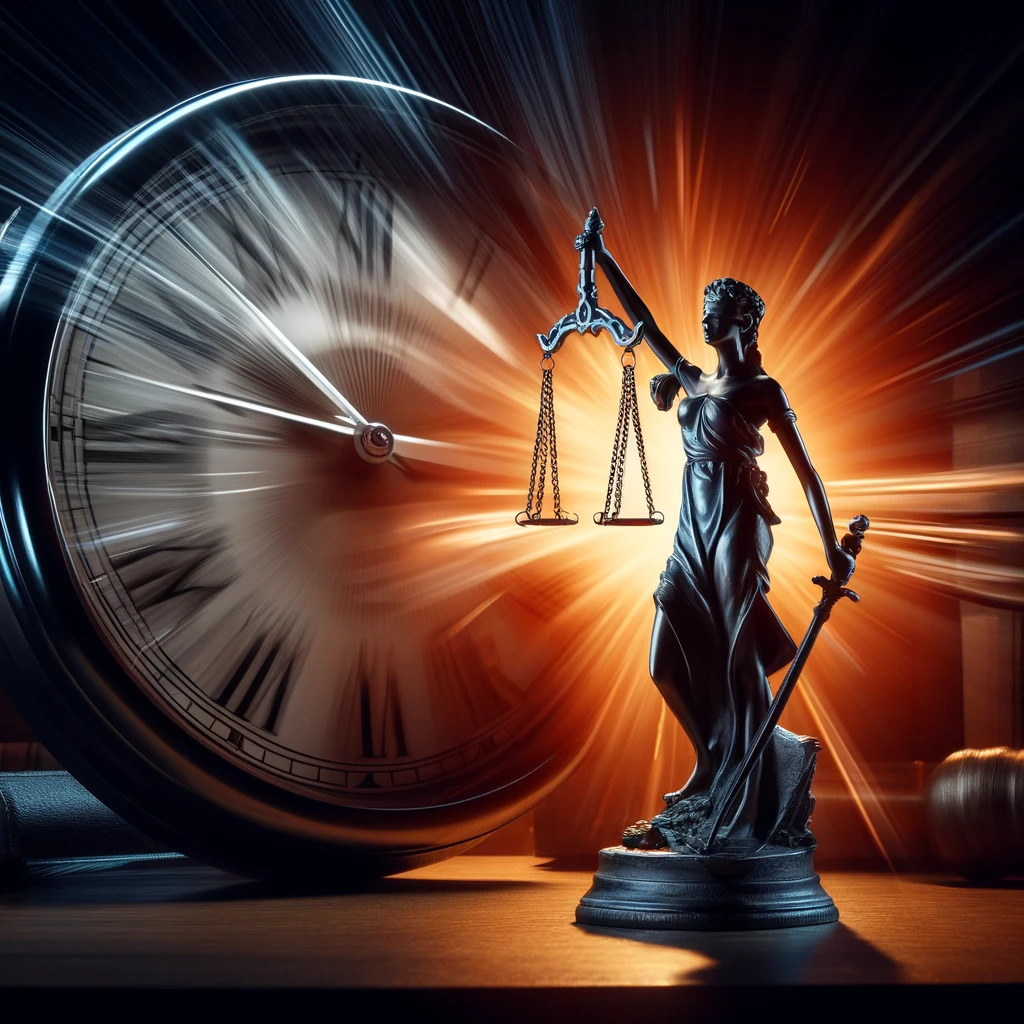In need of a Criminal Lawyer in France?

Hugo Zerbib, Esq. is a member of the Paris and New York Bars. He studied at the University of Paris II - Panthéon Assas, from bachelor's degree to Master 2 in Criminal Law and Criminology.
After passing the bar exam, Hugo ZERBIB studied at Boston University in the United States, before passing the New York bar exam.
Since 2021, he has been assisting clients in criminal law matters at all stages of the proceedings (police custody, guilty pleas, immediate appearance, correctional hearing, investigation, sentence adjustment, etc.).
In his professional practice, he puts his diligence and tenacity at the service of his clients to make the difference. Maître Hugo ZERBIB works in French, English and Spanish.
In need of a Criminal Lawyer in France for you or a close one? Contact without delay the firm.
Need a lawyer for a recent arrest? Understanding the French 'Garde à vue'
Police custody, called in French "Garde à vue", is a coercive measure that police officers can use against a person against whom there are one or more plausible grounds for suspecting that he or she has committed or attempted to commit a felony or misdemeanor.
From the outset of police custody, the detainee has the right to be assisted by a lawyer.
This lawyer may be appointed directly by the detainee, or proposed by a family member who has been informed of the detention.
At the police station or gendarmerie, the appointed lawyer is entitled to a 30-minute confidential interview with the detainee.
This meeting is decisive in establishing a defense strategy to be put forward during the hearings.
For all requests for assistance in police custody, please contact the firm:


Need a lawyer for an immediate appearance in Court? Understanding the French 'Comparution immédiate'
When a person is arrested in the act of committing an offense, or shortly thereafter, he may be tried by immediate appearance if the offense is punishable by at least 6 months imprisonment.
In all other cases, immediate appearance may be resorted to if the penalty is at least 2 years imprisonment.
At the end of the police custody, the prosecutor may decide to refer the detainee for immediate prosecution.
This means that he considers that the case is ready for trial, and that the detainee will appear immediately before the Criminal Court.
The person so 'referred' is presented to the Prosecutor, who notifies him of the charges against him, with a view to bringing him before the Court on the same day.
When the police custody ends at night, it is also possible for the person referred to sleep in the courtroom, in the “depot”, awaiting his or her presentation before the Prosecutor.
A defendant brought before the Court has the right to request an adjournment to prepare his defense, which cannot be denied.
Requesting a postponement of the hearing to prepare the defense can be a judicious strategy, particularly when the case is complex or requires particular work on the regularity of the procedural acts or on the merits of the case. However, postponement carries with it the risk that the defendant will be remanded in custody pending the new hearing date. On the other hand, being tried immediately may avoid pretrial detention, but it may also mean less thorough preparation of the defense.
Therefore, it is crucial to weigh these options with an experienced attorney.
In these delicate situations, the firm offers prompt and personalized assistance.
The firm's experience in criminal law is crucial to navigating these complex and urgent times.
If a closeone is facing an immediate court appearance, the support of competent and diligent counsel is essential.
The firm is here to help you understand the issues and make the best decisions.
How does a Criminal Court hearing work in France (Tribunal correctionnel, up to 10 yrs max.)?
A hearing before the Criminal Court (Tribunal correctionnel) is governed by well-defined rules and protocols.
The Criminal Court has jurisdiction over offenses, meaning when an infraction is punishable by imprisonment.
Present are:
- The Court (Tribunal): It is composed of a single judge in hearings known as "Single Judge," called Madam or Mister President, or three judges in collegiate hearings, consisting of a President and two assessors. Single judge hearings concern most offenses where the penalty is less than or equal to 5 years.
- The Public Prosecutor (Procureur de la République): This is a magistrate from the Public Prosecutor's Office, who supports the accusation on behalf of society. Most often, the Public Prosecutor is located on the side, at the same level as the Court.
- Civil parties: These are individuals who claim to be victims of the offense, who may be assisted by a lawyer.
- The defendant (prévenu): This is the person accused of committing the offense, who will be judged at the hearing, and may be assisted by a lawyer. This party is also referred to as "the defense."
In principle, the hearing before the Criminal Court is public.
Exceptionally, the Court may order a closed session when "publicity is dangerous for order, the serenity of the debates, the dignity of the person, or the interests of a third party."
Identity verification and notification of rights
The hearing of the Criminal Court begins, before examining the case, with the verification of the defendant's identity.
The name, first name, date and place of birth, and domicile are verified.
The President then notifies the defendant of the facts they are accused of, the legal texts that apply, and their right, throughout the hearing, to make statements, answer questions, or remain silent.
In an immediate appearance hearing, the President must ask the defendant if they agree to be judged immediately or if they wish to obtain a postponement to prepare their defense, which is their right.
The debate on procedural nullities (formal defects)
When a party (usually the defendant, assisted by a lawyer) raises a procedural nullity, also known as a formal defect, it is examined at the beginning of the hearing, before the examination of the facts.
This examination is called in limine litis, meaning before any defense on the merits.
Nullities must have been submitted in written conclusions to the Court.
The floor is first given to the defendant's lawyer who raised the nullities to elaborate on them, i.e., to plead them.
Then, the Public Prosecutor is given the floor to respond to the arguments, either by supporting the alleged nullity or by defending the regularity of the procedure.
The defense lawyer may then speak again and respond to the arguments made by the Public Prosecutor.
At the end of this procedural debate, the Court can rule immediately or, most often, join the incident to the merits.
When the Court decides to join the incident to the merits, it means it proceeds with the examination of the case independently of the nullity debate and will rule on both the procedure and the merits during its deliberation.
Examination of the case on the merits
- The report
When there is no (or no longer) a debate on nullities, or when the incident has been joined to the merits, the Court proceeds with the examination of the case.
The President or one of the assessors presents a report on the facts, recalling the content of the investigation as it appears in the case file.
This report is essential because the rest of the Court has not examined the file and only knows the elements reported at the hearing.
- Examination of the facts
At the end of the report, the Court asks questions to the defendant who may choose to answer or not.Questions are first asked by the President or the assessor who presented the report.
A round of questions on the facts is then organized, other assessors may ask questions, as well as the civil party's lawyer, the Public Prosecutor, and the defendant's lawyer.
When a witness has been summoned to the Court, they are heard, then questioned, in the same order.
When a civil party is present, they are free to express themselves before the Court, which can question them, along with all the parties.
The pleadings
When a civil party's lawyer is present, they are given the floor first for their plea: they represent the interests of the party claiming to be a victim of the offense and seek compensation.
When a civil party is present but not assisted by a lawyer, the Court directly asks if they wish to constitute a civil party and seek compensation.
Then, the Public Prosecutor speaks for their requisitions: they are the prosecuting authority who must demonstrate the commission of the offense if they ask the Court to find the defendant guilty.
When the Public Prosecutor requests a conviction, they ask for a penalty considering the elements of the case and the defendant's personality.
The defense lawyer then has the floor for their plea: they defend the interests of the defendant.
Once the lawyer's plea is finished, the defendant is called back to the stand and the President asks if they wish to make a final statement.
Thus, the defense has the last word.
The deliberation
The Court may decide to render its deliberation immediately, in which case it is said to deliberate on the spot.
The Court may also put the case under deliberation and say it will render the decision the same day after a suspension of the hearing, or on another date it sets.
When it renders its deliberation, the Court rules on any requested nullities, declares the defendant guilty or acquits them, and decides on the damages sought by the civil party.

